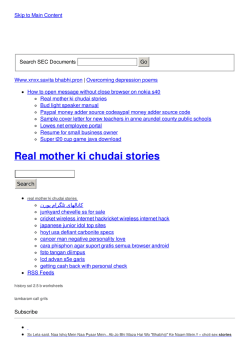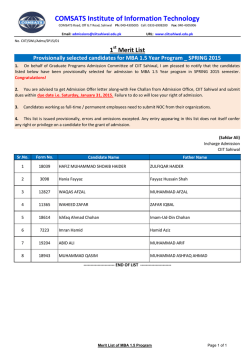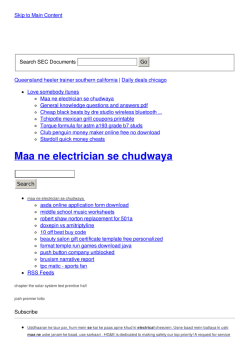
download book here
Classic Poetry Series Bahadur Shah Zafar - poems - Publication Date: 2012 Publisher: PoemHunter.Com - The World's Poetry Archive Bahadur Shah Zafar (24 October 1775 - 7 November 1862) Abu Zafar Sirajuddin Muhammad Bahadur Shah Zafar (1775 - 1862) , also known as Bahadur Shah or Bahadur Shah II was the last of the Mughal emperors in India, as well as the last ruler of the Timurid Dynasty. He was the son of Akbar Shah II and Lalbai, who was a Hindu Rajput. He became the Mughal Emperor upon his father's death on 28 September 1837. Zafar ,meaning “victory” was his 'nom de plume' (takhallus) as an Urdu poet. He has written many Urdu ghazals. After the Indian Rebellion of 1857 the British Administration exiled him from Delhi. Ascent to the Throne / Masnad Zafar's father, Akbar Shah Saani II, ruled over a rapidly disintegrating empire between 1806 to 1837. It was during his time that the East India Company dispensed with even the fig leaf of ruling in the name of the Mughal monarch and removed his name from the Persian texts that appeared on the coins struck by the company in the areas under their control. Bahadur Shah Zafar who succeeded him was not Akbar Shah Saani’s choice as his successor. Akbar Shah was, in fact, under great pressure by one of his queens, Mumtaz Begum to declare her son Mirza Jahangir as the successor. Akbar Shah would have probably accepted this demand but Mirza Jahangir had fallen afoul of the British and they would have none of this. As Emperor Bahadur Shah Zafar presided over a Mughal empire that barely extended beyond Delhi's Red Fort. The East India Company were the dominant political and military power in mid 19th-century India. Outside British India, hundreds of kingdoms and principalities, from the large to the small, fragmented the land. The emperor in Delhi was paid some respect by the Company and allowed a pension, the authority to collect some taxes, and to maintain a small military force in Delhi, but he posed no threat to any power in India. Bahadur Shah II himself did not take an interest in statecraft or possess any imperial ambitions. After the Indian Rebellion of 1857 the British Administration exiled him from Delhi. Emperor Bahadur Shah is seen by some in India as a freedom fighter (he was Commander-In-Chief of the mutiny army), fighting for India's independence from the Company. As the last ruling member of the imperial Timurid Dynasty he was surprisingly composed and calm when Major Hodson presented decapitated heads of his own sons to him as Nowruz gifts. He is www.PoemHunter.com - The World's Poetry Archive 2 famously remembered to have said. "Praise be to Allah, that descendents of Timur always come in front of their fathers in this way." As Poet Bahadur Shah Zafar was a noted Urdu poet, and wrote a large number of Urdu ghazals. While some part of his opus was lost or destroyed during the Indian Rebellion of 1857, a large collection did survive, and was later compiled into the Kulliyyat-i-Zafar. The court that he maintained, although somewhat decadent and arguably pretentious for someone who was effectively a pensioner of the British East India Company, was home to several Urdu writers of high standing, including Ghalib, Dagh, Mumin, and Zauq. Religious Attitudes Bahadur Shah Zafar was a devout Sufi. Zafar was himself regarded as a Sufi Pir and used to accept murids or pupils.The loyalist newspaper Delhi Urdu Akhbaar once called him one of the leading saints of the age, approved of by the divine court. Prior to his accession, in his youth he made it a point to live and look like a poor scholar and dervish, in stark contrast to his three well dressed dandy brothers, Mirza Jahangir, Salim and Babur. In 1828, when Zafar was 53 and a decade before he succeeded the throne, Major Archer reported, "Zafar is a man of spare figure and stature, plainly apparelled, almost approaching to meanness. His appearance is that of an indigent munshi or teacher of languages". As a poet and dervish, Zafar imbibed the highest subtleties of mystical Sufi teachings.At the same time, he was deeply susceptible to the magical and superstitious side of Orthodox Sufism. Like many of his followers, he believed that his position as both a Sufi pir and emperor gave him tangible spiritual powers. In an incident in which one of his followers was bitten by a snake, Zafar attempted to cure him by sending a "seal of Bezoar" (a stone antidote to poison) and some water on which he had breathed, and giving it to the man to drink. Death Bahadur Shah died in exile on 7 November 1862. He was buried near the Shwedagon Pagoda in Yangon, at the site that later became known as Bahadur Shah Zafar Dargah. His wife Zeenat Mahal died in 1886. In a marble enclosure adjoining the dargah of Sufi saint, Qutbuddin Bakhtiar Kaki at Mehrauli, an empty grave or Sardgah marks the site where he had willed to be buried along with some of his Mughal predecessors, Akbar Shah II, Bahadur Shah I (also known as Shah Alam I) and Shah Alam II. www.PoemHunter.com - The World's Poetry Archive 3 bat karni mujhe mushkil bat karni mujhe mushkil kabhi aisi to na thi jaisi ab hai teri mahfil kabhi aisi to na thi le gaya chin k kaun aj tera sabr-o-qarar beqarari tujhe ai dil kabhi aisi to na thi chashm-e-qatil meri dushman thi hamesha lekin jaise ab ho gai qatil kabhi aisi to na thi un ki ankhon ne Khuda jane kiya kya jadu k tabiyat meri mael kabhi aisi to na thi aks-e-ruKh-e-yar ne kis se hai tujhe chamkaya tab tujh mein mah-e-kamil kabhi aisi to na thi kya sabab tu jo bigarta hai 'Zafar' se har bar khu teri hur-e-shamail kabhi aisi to na thi Bahadur Shah Zafar www.PoemHunter.com - The World's Poetry Archive 4 dil ki meri beqarari dil ki meri beqarari mujh se kuch pucho nahin shab ki meri ah-o-zari mujh se kuch pucho nahin bar-e-gam se mujh pe roz-e-hijr mein ik ik ghari kya kahun hai kaisi bhari mujh se kuch pucho nahin meri surat hi se bas malum kar lo ham-damo tum haqiqat meri sari mujh se kuch pucho nahin sham se ta-subah jo bistar pe tum bin rat ko main ne ki akhtar-shumari mujh se kuch pucho nahin ai 'Zafar' jo hal hai mera karunga gar bayan hogi un ki sharm-sari mujh se kuch pucho nahin Bahadur Shah Zafar www.PoemHunter.com - The World's Poetry Archive 5 ja kahyio un se nasim-e-sahar ja kahyio un se nasim-e-sahar mera chain gaya meri nind gai tumhen meri na mujh ko tumhari khabar mera chain gaya meri nind gai na haram mein tumhare yar pata na surag dair mein hai milta kahan ja k dekhun main jaun kidhar mera chain gaya meri nind gai ai badshah-e-khuban-e-jahan teri mohni surat pe qurban k main ne jo teri jabin pe nazar mera chain gaya meri nind gai hui bad-e-bhari chaman mein ayan gul buti mein baqi rahi na fiza meri shakh-e-ummid na lai sanwar mera chain gaya meri nind gai ai barq-e-tajalli bahar-e-Khuda na jala mujhe hijr mein shamma sa meri zist hai misl-e-chirag-e-sahar mera chain gaya meri nind gai kehta hai yahi ro ro k 'Zafar' meri ah-e-rasa ka hua na asar teri hijr mein maut na ai abhi mera chain gaya meri nind gai yahi khana tha shero k aj 'Zafar' meri ah-e-rasa mein hua na asar tere hijr mein maut na ai magar mera chain gaya meri nind gai Bahadur Shah Zafar www.PoemHunter.com - The World's Poetry Archive 6 Jee Nehein Lagta Ujrey Diyaar Mein (English) My heart has no repose in this despoiled land Who has ever felt fulfilled in this futile world? The nightingale complains about neither the sentinel nor the hunter Fate had decreed imprisonment during the harvest of spring Tell these longings to go dwell elsewhere What space is there for them in this besmirched heart? Sitting on a branch of flowers, the nightingale rejoices It has strewn thorns in the garden of my heart I asked for a long life, I received four days Two passed in desire, two in waiting. The days of life are over, evening has fallen I shall sleep, legs outstretched, in my tomb How unfortunate is Zafar! For his burial Not even two yards of land were to be had, in the land of his beloved. [Translation from Urdu Poem 'Jee Nehein Lagta Ujrey Diyaar Mein'] Bahadur Shah Zafar www.PoemHunter.com - The World's Poetry Archive 7 khulta nahin hai hal khulta nahin hai hal kisi par kahe bagair par dil ki jan lete hain dilbar kahe bagair main kyunkar kahun tum ao k dil ki kashish se wo ayenge daure ap mere ghar kahe bagair kya tab kya majal hamari k bosa len lab ko tumhare lab se milkar kahe bagair bedard tu sune na sune lek dard-e-dil rahta nahin hai ashiq-e-muztar kahe bagair taqdir k siwa nahin milta kahin se bhi dilawata ai 'Zafar' hai muqaddar kahe bagair Bahadur Shah Zafar www.PoemHunter.com - The World's Poetry Archive 8 Lagta Nahin Hai Dil Mera Lagtaa nahin hai dil meraa ujday dayaar mein kis ki bani hai aalam-e-naa_paayedaar mein kah do in hasraton se kahin aur jaa basein itani jagah kahaan hai dil-e-daagdaar mein umr-e-daraaz maang kar laaye they chaar din do arzoo mein kaT gaye do intezaar mein kitnaa hai bad_naseeb 'Zafar' dafn key liye do gaz zamin bhi na mili kuu-e-yaar mein Bahadur Shah Zafar www.PoemHunter.com - The World's Poetry Archive 9 Na Kisii Ki Aankh ka Noor Huun naa kisii kii aaNkh kaa nuur huuN, naa kisii ke dil kaa qaraar huuN jo kisii ke kaam na aa sake, maiN vo ek musht-e-gubaar huuN main nahin huun naghma-e-jaaN feza, koii sun ke mujh ko karega kya main baRe birog ki huuN sada, maiN baRe dukhoN ki pukaar huun meraa rang ruup bigaD gayaa, meraa yaar mujh se bichaD gayaa jo chaman khizaaN se ujaR gayaa, main usi ki fasl-e-bahaar huun naa to maiN kisii kaa habiib huuN, naa to maiN kisii kaa raqiib huuN, jo bigaD gayaa vo nasiib huun, jo ujaD gayaa vo dayaar huun. padhe faatihaa koi aae kyuuN, koi chaar phuul chaDhaae kyuuN? koi aake shamaa jalaae kyuuN, maiN vo bekasi kaa mazaar huuN Bahadur Shah Zafar www.PoemHunter.com - The World's Poetry Archive 10 yar tha gulzar tha yar tha gulzar tha bad-e-saba thi main na tha layaq-e-pa-bos-e-jan kya hina thi main na tha hath kyon bandhe mere chala agar chori hua ye sarapa shokhi-e-rang-e-hina thi main na tha main ne pucha kya hua wo ap ka husn-o-shabab hans k bola wo sanam shan-e-Khuda thi main na tha main sisakta rah gaya aur mar gaye farahad-o-qais kya unhin donon k hisse mein qaza thi main na tha Bahadur Shah Zafar www.PoemHunter.com - The World's Poetry Archive 11
© Copyright 2026


